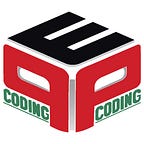Self-taught programmers are on the rise. With the number of resources available online, now it’s easier than ever to be a programmer on your own terms. However, being self-taught has some fair share of cons too.
As a self-taught programmer, you are your own mentor and critic. Since there is no one to point out your strengths and weaknesses, it can stop you from growing your skills to the fullest potential. It’s very common to make mistakes early in your career as a programmer and as a human being. So, we are going to share some mistakes that are quite common for self-taught programmers.
If you find yourself doing one of these, don’t fret it. We are going to share some good practices and corrective measures to rectify those sins too. So, keep reading.
They stick to the same tech stack for every project:
Most companies demand developers who are skilled in at least one of the tech stacks. As a self-taught developer, you should definitely choose a tech stack and develop robust projects with them. But, although developing expertise is important to get you jobs in Software Development, it is not enough to excel in the industry.
To succeed in any domain, you need a receptive mindset to learn new things. In the programming world, corporations are looking for developers who stay up-to-date with modern technologies and are willing to learn and apply them whenever needed.
So, don’t be stubborn. Branch out to learn new tech stacks if your projects require you to. Once you put your toes in the unknown technology, it won’t feel so strange and scary.
They always choose a high-level language:
Let me clarify the difference between a high-level and a low-level language. High-level languages are those that have a high level of abstraction. This means that you don’t have to worry about giving instructions related to hardware. You only have to code the logic of the program. Languages like Javascript, Ruby, Python are high-functioning languages. Low-level languages on the other hand are those that require you to write specific instructions for the hardware too.
Self-taught programmers prefer low-level language because it helps you understand how computers really work.
College students have a one-up in this case. In college, you are taught programming in C and C++ which are high functioning languages but also help you understand CS fundamentals and how to interact with hardware. So, set aside some time to understand C and C++ that require you to study not only syntax but also concepts of computers.
They don’t focus on the quality of the code
Many self-taught programmers develop the habit to make it work in time without paying any consideration to the quality of their code. Delivering a feature or a product before deadlines can definitely give you a rush, but it does more harm than good if you make your code unreadable for others. Coding for bigger companies needs collaborative work.
So, pay attention to the readability of your code, even if it takes extra time. Good things take time..sometimes. Use Github to learn to code collaboratively. Study other people’s codes so you can employ the best practices on your own. And eventually, contribute to other people’s code on open source projects.
Find a community of coders on NADOS, where students learn and improve their coding skills with us.
They write duplicate Code
This goes along with the previous point. Programmers who don’t pay attention to the code quality. If a codebase contains code that has been pasted hundreds of times, no one wants to work with it. So, make sure you spare a little time to remove the extra code that is making your code chunky.
Less code takes less space on the server which makes the webpage faster to load, something that’s very important in websites.
Not doing any unit testing
Most self-taught programmers don’t believe in unit testing, they work with code calls and manual testing. Automated testing is very important for documentation that lets you make high-quality code. So, go ahead and check your code on test cases, it wouldn’t hurt your ego, maybe your code, but not your ego.
They work with the most popular technology
Now don’t get me wrong, learning new technologies is not a sin for a developer. In fact, being aware of new technologies is quite important, as we discussed earlier. But the problem happens when programmers only watch the tutorials of the hottest technologies without creating any real-world projects with them.
Pepcoding provides you a chance to build 40+ impressive projects that can set you up for placement in top-notch product-based companies. You can check out our free resources to become an industry-ready self-taught developer.
Author: Mansi Sabharwal
